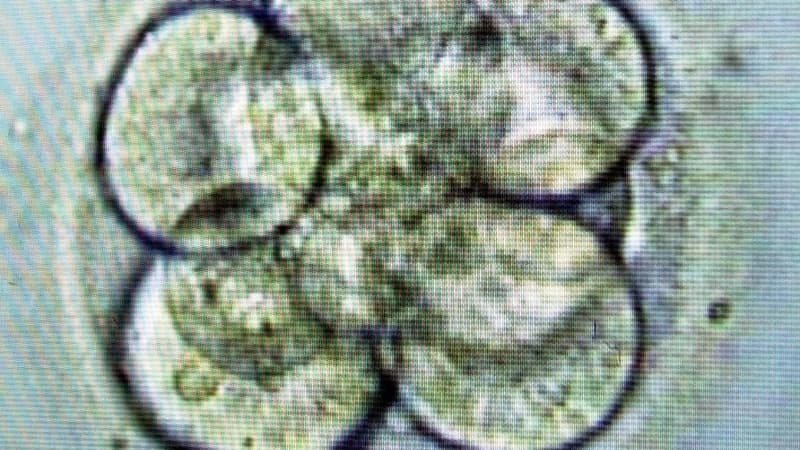Making babies in space. The idea may seem crazy. However, the reasons that could push earthlings to leave their planet are not entirely unrealistic. Climate crisis, meteorite fall… Humanity could be forced to take up residence on another planet. And in this hypothesis, it would have to be able to reproduce in space. In any case, this is the thesis defended by Dutch businessman Egbert Edelbroek, founder and CEO of Spaceborn United, a start-up that works on reproduction and possible births in the partial gravity environment of Mars.
The challenges are galactic. The first sexual relations in space seem utopian, but the ambitious Dutchman is convinced that during his lifetime he will see the birth of a human being conceived in space.
Therefore, humanity must “become a multiplanetary species,” he stressed to AFP.
“A space station for your cells”
Given the colossal challenges posed by possible sexual relations in space, the main one being the lack of gravity that would separate couples, Spaceborn United aims above all to conceive an embryo in space.
The company first works for ethical reasons on the reproduction of mice, before considering sending human sperm and eggs far from Earth. With this in mind, he created a disk that mixes the cells.
It’s like a “space station for your cells,” summarizes Aqeel Shamsul, CEO of the British company Frontier Space Technologies, which is collaborating with Spaceborn on the project.
The embryo will then be cryogenically frozen to suspend its development and ensure safe return under difficult conditions, including shaking and gravitational forces.
A launch with mouse cells is planned for the end of next year and, according to Egbert Edelbroek, it will be at least “five or six years” until the first launch that produces a human embryo.
In late October, Japanese scientists announced that they had sent frozen mouse embryos to the International Space Station (ISS) before growing them. Its “normal” development aboard the ISS represents a key first step.
An ethical challenge
But it is only a small step, and from an ethical point of view a big leap will be necessary before an embryo of these characteristics can be reimplanted in a woman and the first child conceived in space is born.
The sensitivity of these issues is one reason why space-reproduction research has generally been left to private companies rather than NASA, he says.
Egbert Edelbroek, who believes his company is the only one seeking to develop a human embryo in space, hopes humanity will achieve a natural birth in space, although he admits the road is “long.”
Body fluids, drawn downward on Earth, would be drawn upward in a low-gravity environment, posing several challenges.
Risks associated with the rise of space tourism
While adult bodies can handle some differences, a growing fetus is “more vulnerable.” “That’s why you first have to create the perfect environment,” he explains.
We must also take into account the current development of space tourism: a new type of travelers could want to be the first to design in space, predicts the businessman, who is raising awareness about the risks of the sector.
Spaceborn’s research – which replicates the in vitro fertilization process in space – also helps people conceive on Earth, according to the executive.
He initially hoped to conceive a baby in space within a few years, but the magnitude of the challenges forced him to scale back his ambitions.
“We went from being tremendously ambitious to just very ambitious,” he explained.
But the 48-year-old remains convinced that a baby will be born in space in his lifetime: “I hope it is at least 100 years old. This should give us enough decades to get there.”
Source: BFM TV


